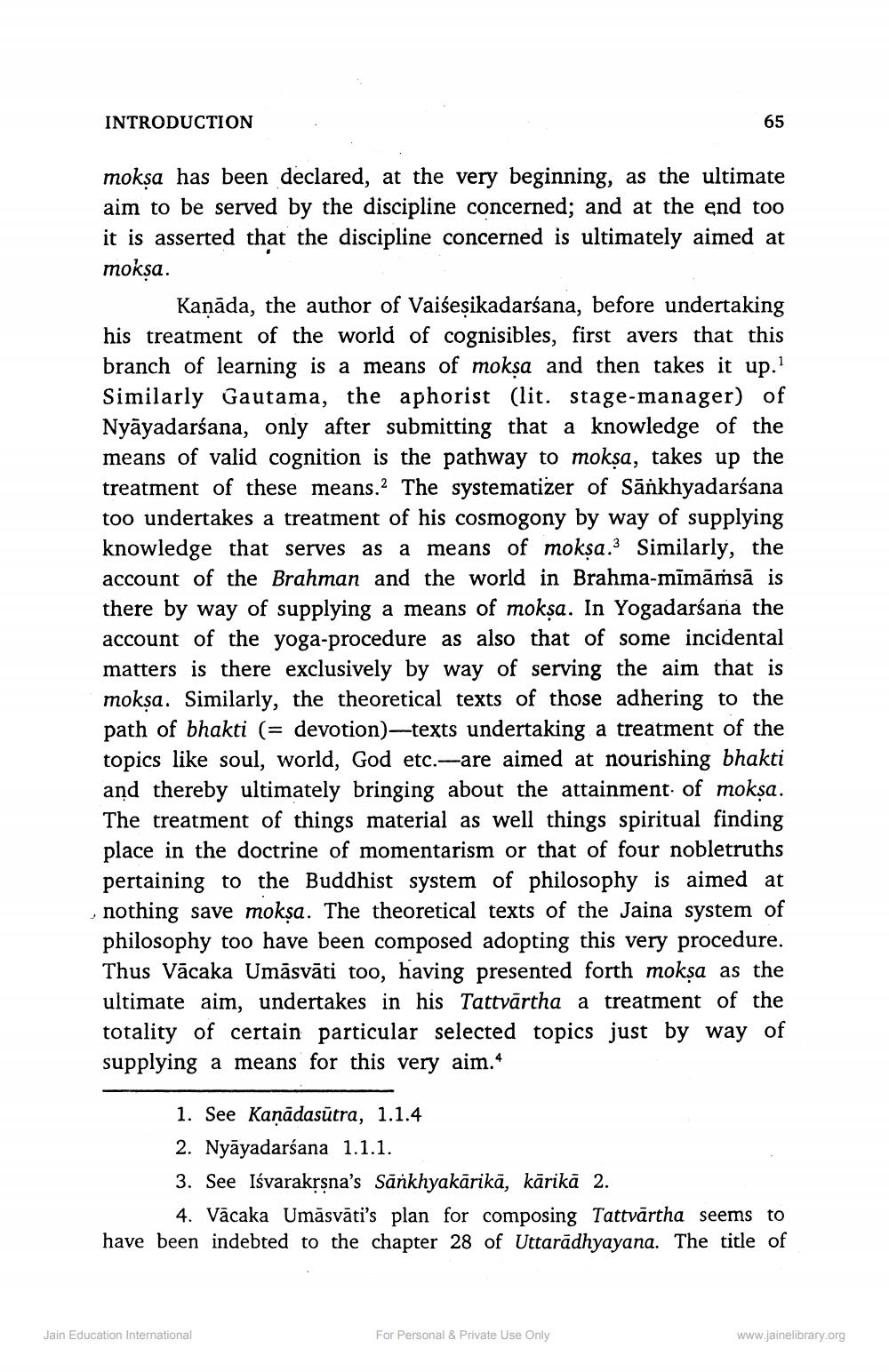________________
INTRODUCTION
65
moksa has been declared, at the very beginning, as the ultimate aim to be served by the discipline concerned; and at the end too it is asserted that the discipline concerned is ultimately aimed at mokşa.
Kaņāda, the author of Vaiseșikadarśana, before undertaking his treatment of the world of cognisibles, first avers that this branch of learning is a means of mokṣa and then takes it up.! Similarly Gautama, the aphorist (lit. stage-manager) of Nyāyadarśana, only after submitting that a knowledge of the means of valid cognition is the pathway to mokşa, takes up the treatment of these means. The systematizer of Sānkhyadarśana too undertakes a treatment of his cosmogony by way of supplying knowledge that serves as a means of mokṣa.3 Similarly, the account of the Brahman and the world in Brahma-mīmāṁsā is there by way of supplying a means of mokṣa. In Yogadarśana the account of the yoga-procedure as also that of some incidental matters is there exclusively by way of serving the aim that is moksa. Similarly, the theoretical texts of those adhering to the path of bhakti (= devotion)--texts undertaking a treatment of the topics like soul, world. God etc.-are aimed at nourishing bhakti and thereby ultimately bringing about the attainment of mokşa. The treatment of things material as well things spiritual finding place in the doctrine of momentarism or that of four nobletruths pertaining to the Buddhist system of philosophy is aimed at nothing save mokṣa. The theoretical texts of the Jaina system of philosophy too have been composed adopting this very procedure. Thus Vācaka Umāsvāti too, having presented forth mokṣa as the ultimate aim, undertakes in his Tattvārtha a treatment of the totality of certain particular selected topics just by way of supplying a means for this very aim.*
1. See Kaņādasūtra, 1.1.4 2. Nyāyadarśana 1.1.1. 3. See Isvarakrsna's Sankhyakārikā, kārikā 2.
4. Vācaka Umāsvāti's plan for composing Tattvārtha seems to have been indebted to the chapter 28 of Uttarādhyayana. The title of
Jain Education International
For Personal & Private Use Only
www.jainelibrary.org




